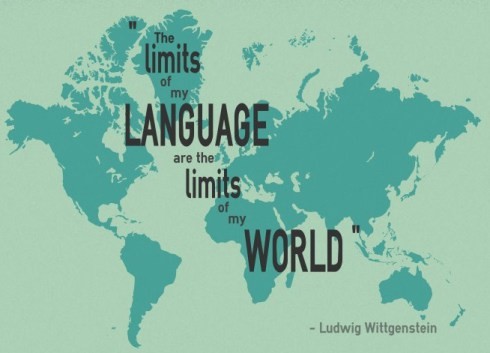Spanglarian: The ups and downs of using three languages at the same time
I’ve been having thoughts since high school about how cool and beneficial it could be to speak many languages, but little did I expect that this wish would actually turn into the reality of the 23-year-old me. Surely, I have always known that I have a talent for learning languages (however the more experienced I am in the field, the more I deny the assumption that one needs to be gifted in order to master a foreign language) and also I’ve been always very interested in languages, but I could still not believe that it would actually happen to me.

Yet, here I am, speaking three different languages other than my mother tongue with varying degrees of fluency:
- English, my SECOND foreign language, on an advanced level (C1) – and in some aspects even proficiency. It plays a mediatory role in many relationships I have with people from all around the world, but most importantly with my boyfriend and his family.
- Spanish, my THIRD foreign language, on a strong basic level (B1) that currently I’ve been using in my everyday life and to communicate with those friends of mine who cannot speak English.
- German, my FIRST foreign language, on an I-really-have-no-idea-but-officially-C1-level, as I haven’t been using it for ages (if I want to be accurate, 5! ).
So at this point of my life, the languages I’m in contact with on a daily basis are English, Spanish and Hungarian. Now, many of you must think that this is something amazing, and I guess most of the time I agree – but sometimes it can really be exhausting and can cause brain overload. Sometimes I wish my brain would stop working for a second so that I can get a break from my trilingual reality. Thus, I am going to tell you what the pros and cons of speaking three different languages at the same time are for me.

The pros
First of all, linguists have proved that bilingualism strengthens such skills as problem-solving, empathy and filtering the information received based on how useful they are, but these are just a few examples. Although I’m not a bilingual, I believe my situation allows me to acquire similar skills, but at least I am continuously training my brain, which is without doubt already a big advantage.
Another positive aspect is that by being able to speak a language, I not only learn words and grammatical rules, but I also learn how to see the world with the eyes of the advocates of that given language. I can understand them better, their culture and I can also understand certain correlations that I would never be able without language knowledge. Unfortunately when I am trying to explain this to someone, I can never find a good example in the moment – and I cannot find a good example right now, either. So I hope that in spite of the quite abstract way I put it, you can still get an idea of what I’m talking about.

I have also learnt many new words in my mother tongue by learning new words in English or Spanish (or even German), as the origin of the latter’s is Latin. In Hungarian, we have the Hungarian version of most of the words and we use expressions originated from Latin in a more formal, academic context. Not much in everyday life. So an average Hungarian comes across these type of words in high school or university and to get familiar with them takes time. Therefore, in my case, speaking Indo-European languages helps me to broaden my Hungarian vocabulary as it becomes much easier to transplant them into Hungarian expressions.
And last but not least, I am also very proud that now I can easily switch between Hungarian, English and Spanish. Of course it takes some effort, but it happens very often that after speaking Spanish for two hours in the academy, I meet my boyfriend and we discuss a more difficult topic in English and afterwards I go to skype with my parents. I just wish German would be on the list as well...
The cons
Just by continuing discussing the last aspect in the pros list, we easily get to one of the cons, namely that switching between languages without realizing sometimes results in switching to the wrong language without realizing. I cannot count how many times I started a sentence in English – or even Spanish – when talking to my parents, or how many times I gave monologues to my Brazilian friend, Kellen, while she just kept staring at me, because it wasn’t in Spanish.
Then, it also happens quite often that I would prefer to just mix all the languages I know in order to express myself the way I would like to or the more accurately. Because sometimes the new Spanish word I have just learnt in the class in the morning would be very handy when trying to explain something in English later during the day, but oooops! in English there is no such a word. However, the worst situations are when I am dying to use a Hungarian proverb, but I just cannot, and I have to paraphrase it! That’s just annoying! To give you an example, for some reason, I used to want to use the proverb “Néma gyereknek anyja sem érti a szavát” very often with my boyfriend, which in English would be something like “A mute child cannot be understood even by its own mother". It means that communication is essential to solve our problems.
Finally, the whole process of speaking and thinking in three languages at the same time can be very tiresome. It’s like you have to keep in mind three times as much words and expressions, while you have to make sure to store them in separate parts of your brain in order to avoid confusing them. But sometimes it happens, and that’s when Spanglarian is invented.

I would like to finish the post with mentioning an old hypothesis developed by the linguists Sapir and Whorf, according to which there is a fundamental relationship between language and reality. Their idea was that the particular language we speak is not only a medium for expressing our thoughts, but it also guides and determines our perception of social reality. Although this assumption has been criticized by other scholars for providing a narrow interpretation as to what influences communication, because it focuses solely on the spoken language, I still find it very interesting and often surprisingly true. Because what else would be the explanation to having five different words for the same piece of reality in one language, while only one in the other? Spanglarian
Photo gallery
Content available in other languages
Want to have your own Erasmus blog?
If you are experiencing living abroad, you're an avid traveller or want to promote the city where you live... create your own blog and share your adventures!
I want to create my Erasmus blog! →







Comments (1 comments)
The amount of words we use to descrive something in a lenguage is completely related to our social reality! That is why the inuit have like a thousand words to descrive snow, because it is a matter of life or death, whereas to a spanish it is way more than enough with a single word since the snow has no presence in their life.
I speak 3 lenguages in a much easier way than the ones you explained since I never got to a process of learning them, they were just given to me in my chilhood but, I can still easily relate to what you are saying. Even though your mind sometimes collapses, in the real every day situation there's a long way until you give up understanding. It is like I would have several folders in my brain and if a word doesn't match in one of them I immediatly go and search in the others and if I find a similarity in one this word will already be related to a line of experiences, situations, and so the chances to understand multiply.
(Sorry for the extended comment, I just felt like writing it. This text makes me want to talk to you, Petra K.)